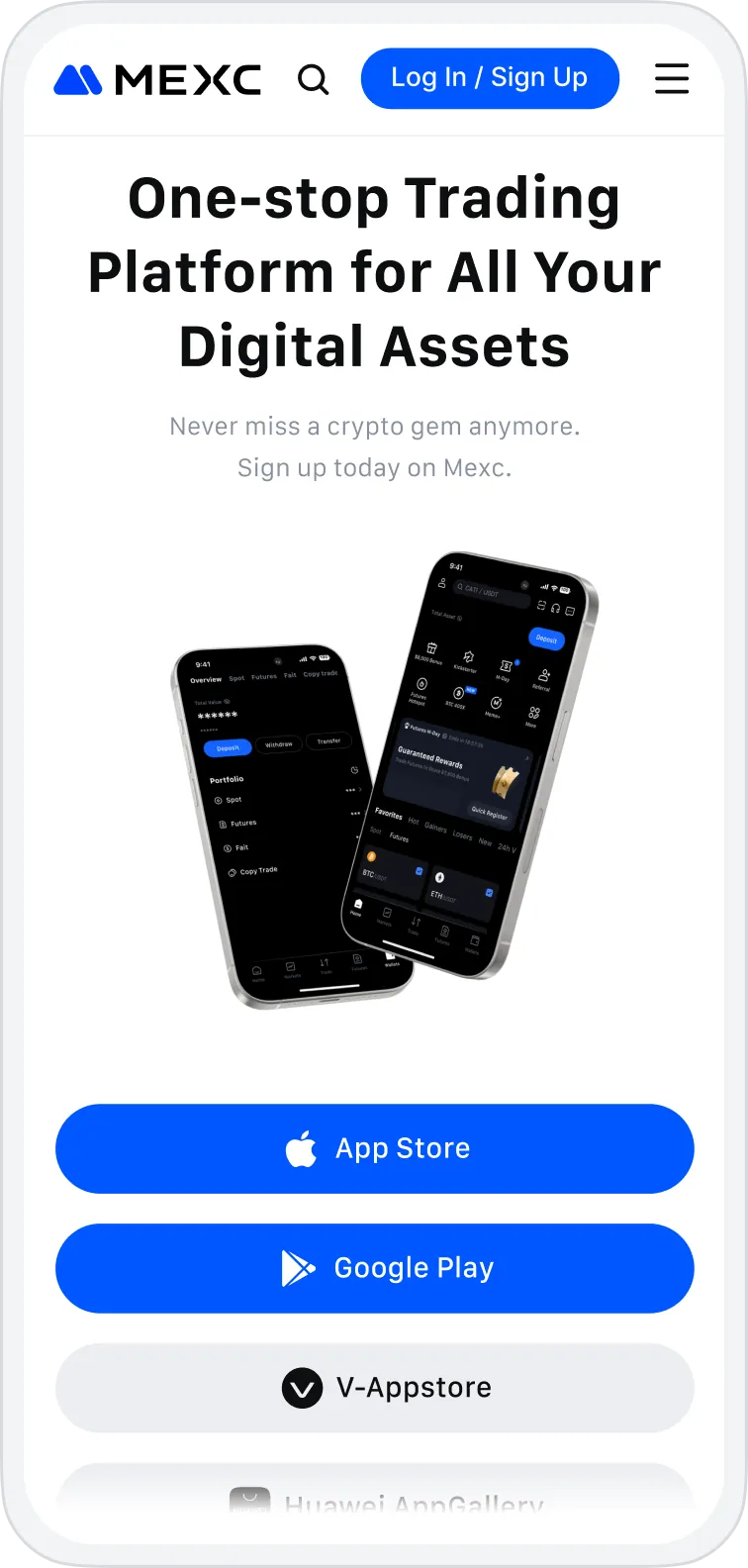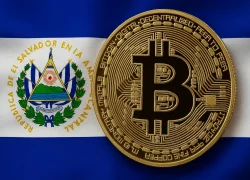
Bitcoin Price(BTC)
Bitcoin Price(BTC)
1 BTC to USD Live Price:
Bitcoin Price Today
The live Bitcoin (BTC) price today is $ 69,738.44, with a 1.51% change over the past 24 hours. The current BTC to USD conversion rate is $ 69,738.44 per BTC.
Bitcoin currently ranks #1 by market capitalization at $ 1.39T, with a circulating supply of 19.99M BTC. During the last 24 hours, BTC traded between $ 66,611.16 (low) and $ 69,867.71 (high), reflecting market activity. Its all-time high stands at $ 126,198.06960343386, while the all-time low was $ 0.04864654.
In short-term performance, BTC moved +0.69% in the last hour and +1.81% over the past 7 days. Over the past day, total trading volume reached $ 831.32M.
Bitcoin (BTC) Market Information
No.1
95.18%
58.33%
2008-11-01 00:00:00
BTC
The current Market Cap of Bitcoin is $ 1.39T, with a 24-hour trading volume of $ 831.32M. The circulating supply of BTC is 19.99M, with a total supply of 19988915. Its Fully Diluted Valuation (FDV) is $ 1.46T.
Bitcoin Price History USD
+0.69%
+1.51%
+1.81%
+1.81%
Bitcoin (BTC) Price History USD
Track the price changes of Bitcoin for today, 30 days, 60 days, and 90 days:
| Period | Change (USD) | Change (%) |
|---|---|---|
| Today | $ +1,037.3859 | +1.51% |
| 30 Days | $ -26,900.84 | -27.84% |
| 60 Days | $ -17,511.39 | -20.08% |
| 90 Days | $ -25,888.25 | -27.08% |
Today, BTC recorded a change of $ +1,037.3859 (+1.51%), reflecting its latest market activity.
Over the past 30 days, the price shifted by $ -26,900.84 (-27.84%), showing the token's short-term performance.
Expanding the view to 60 days, BTC saw a change of $ -17,511.39 (-20.08%), giving a broader perspective on its performance.
Looking at the 90-day trend, the price moved by $ -25,888.25 (-27.08%), offering insight into the token's long-term trajectory.
Want to unlock the all-time price history and price movements of Bitcoin (BTC)?
Check out the Bitcoin Price History page now.
Analysis for Bitcoin
This analysis leverages AI models to evaluate Bitcoin recent price action, volume dynamics, and market sentiment. Real-time data processing highlights emerging trends and potential trading setups, supporting more informed and timely decisions.
Bitcoin market trend today: bullish or bearish?
Current overall sentiment in the BTC market: bearish, bullish 35% | bearish 65%;
| Indicator Dimension | Model Conclusion | Proportion/Threshold | Quick Take |
|---|---|---|---|
| KDJ | Golden Cross | K > D | Short-term momentum warming up, temperature rising. |
| EMA Group | 5‑6 Buy | 60‑80% Buy | Majority of MAs pointing up, bullish alignment dominant. |
| StochRSI | 20‑80 | Neutral Zone | Normal pace, no extreme signals. |
| MACD | Dead Cross | DIF < DEA | Bearish momentum emerging. |
| BOLL (20,2) | Lower ≤ Price ≤ Middle | Between lower and middle band | Relatively weak, but not extreme. |
| RSI (14) | Neutral | 30‑70 | Within normal range, still has room. |
| MA Group | 5‑6 Buy | 60‑80% Buy | Majority of MAs pointing up, bullish alignment dominant. |
| Pivot Point | S1 ≤ Price < Pivot | Between S1‑Pivot | Just left central pivot, moderately low position. |
【Market Structure】 BTC_USDT is currently trading at 67,493.39 on the 4-hour timeframe, positioned 37 points below the key pivot level of 67,530.67. The moving average convergence/divergence (MACD) indicator has generated a bearish crossover signal, while the moving average/EMA combination continues to signal a potential buy opportunity. The price is currently operating within the lower half of the intraday trading range and is approaching the critical pivot levels. 【Momentum Status】 The MACD has signaled a bearish crossover, creating a divergence with the bullish signals from the MA/EMA combination. The Relative Strength Index (RSI) remains in the neutral zone, indicating that short-term momentum is characterized by a lack of synchronization between fast and slow indicators. Due to missing KDJ and StochRSI data, the overall momentum distribution presents a mixed signal pattern. 【Key Price Levels】 The upper resistance level at 68,043.03 is 550 points above the current price, while the secondary resistance at 68,530.67 is 1,037 points away. On the downside, the lower support level at 67,043.03 is 450 points below the current price, and the strong support at 66,530.67 is 963 points away.
This content is generated by AI based on historical and current market data. It is for informational purposes only and does not constitute any investment advice.
What factors influence Bitcoin's prices?
1. Supply and demand dynamics - Limited supply of 21 million coins creates scarcity
2. Market sentiment and investor psychology
3. Regulatory news and government policies
4. Institutional adoption and corporate investments
5. Macroeconomic factors like inflation and interest rates
6. Mining costs and network hash rate
7. Media coverage and public perception
8. Technical developments and network upgrades
9. Market manipulation by large holders
10. Global economic uncertainty driving safe-haven demand
Why do people want to know Bitcoin's price today?
Price Prediction for Bitcoin
In 2040, the price of Bitcoin could potentially see a growth of 0.00%. It could reach a trading price of $ --.
For real-time scenario projections and a more personalized analysis, users can utilize MEXC's Price Prediction Tool and AI Market Insights.
Want to know what price Bitcoin will reach in 2026–2027? Visit our Price Prediction page for BTC price predictions for the years 2026–2027 by clicking Bitcoin Price Prediction.
About Bitcoin
Bitcoin (BTC) is the founding crypto as well as the pinacle of cryptocurrency. Launched back in 2009 by an individual called Satoshi Nakamoto, Bitcoin became the first peer-to-peer network that requires no intermediaries. It operates on a blockchain technology, where transactions are verified by network nodes and recorded using a public distributed ledger. It has a total capped supply of 21 million BTC, maintaining scarsity and store of value. Since the creation of Bitcoin, many altcoins began emerging from the market. One of the few most prominent tokens are Ethereum (ETH), Solana (SOL), as well as a variety of memecoins such as DOGE, PEPE, and more.
How to buy & Invest Bitcoin
Ready to get started with Bitcoin? Buying BTC is quick and beginner-friendly on MEXC. You can start trading instantly once you have made your first purchase. To learn more, check out our full guide on how to buy Bitcoin. Below is a quick 5-step overview to help you begin your Bitcoin (BTC) Buying journey.
Sign Up for an Account and Complete KYC
Add USDT, USDC, or USDE to Your Wallet
Head to Spot Trading Page
Choose Your Tokens
Complete Your Purchase

What can you do with Bitcoin
Owning Bitcoin allows you to open more doors in terms of just buying and holding. You can trade BTC across hundreds of markets, earn passive rewards through flexible staking and savings products, or leverage professional trading tools to grow your assets. Whether you are a beginner or professional, experienced investor, MEXC makes it easy to maximize your crypto potential. Below are the top four ways you can make the most of your Bitcoin tokens
Trading with Extremely Low Fees on MEXC
Buying Bitcoin (BTC) on MEXC means more value for your money. As one of the lowest-fee crypto platforms on the market, MEXC helps you reduce costs from your very first trade.
Check out MEXC's competitive trading fees
Furthermore, you can trade selected spot tokens with absolutely no fees via MEXC's Zero Fee Fest.
What is Bitcoin (BTC)
Bitcoin (BTC) is the world's first cryptocurrency. Founded back in 2009, it became the cornerstone for all the altcoins that we are looking at today. Bitcoin's main concept since 2009 has been to introduce and promote the idea of a peer-to-peer electronic cash system. This system will allow users from all around the world to send and receive remittances or payments without any intermediaries. This system also paved the way to the worldwide adoption of decentralization, forming popular niches such as Decentralized Finance (DeFi), Decentralized Applications (Dapps), and many more.
Unlike traditional money, Bitcoin's total supply is permanently capped at 21 million coins, ensuring scarcity. Each Bitcoin unit represents a unique entry on the public blockchain — a distributed ledger maintained by thousands of computers worldwide.
Who Created Bitcoin?
Bitcoin's origin traces back to October 2008, when a white paper titled "Bitcoin: A Peer-to-Peer Electronic Cash System" was published by Satoshi Nakamoto. The identity of Nakamoto remains unknown, but their vision reshaped modern finance, enabling trustless transactions secured by cryptography instead of intermediaries.
The first Bitcoin block, known as the Genesis Block, was mined on January 3, 2009, marking the start of a decentralized financial era. While Nakamoto disappeared from public view in 2010, the open-source community continues to maintain and upgrade the Bitcoin protocol.
How Does Bitcoin Work?
Bitcoin operates through a decentralized network of nodes that validate transactions using a Proof-of-Work (PoW) mechanism. Additionally, each transaction is recorded in the bitcoin blockchain,
Each transaction is recorded on the Bitcoin blockchain, a transparent ledger accessible to anyone. Miners compete to solve cryptographic puzzles; the first to succeed adds a new block of verified transactions to the chain and earns a reward in Bitcoin.
This process ensures that the Bitcoin network remains secure, transparent, and tamper-resistant. Because there is no central authority, every node in the system helps enforce the same consensus rules, maintaining the integrity of the blockchain globally.
Bitcoin Mining and Energy
Mining is the process of validating transactions and adding them to the blockchain. It requires computational power and electricity to solve mathematical problems that secure the network.
As more miners join, the mining difficulty adjusts automatically to maintain an average block time of roughly 10 minutes.
While Bitcoin's energy use has drawn environmental scrutiny, many modern mining operations increasingly rely on renewable energy sources and efficient hardware. Studies show the share of renewable energy in Bitcoin mining continues to grow, reflecting the sector's push toward sustainability.
Bitcoin Tokenomics
Bitcoin's economic model, known as tokenomics, is based on scarcity and predictable issuance.
Maximum Supply: 21 million BTC
Block Reward: New Bitcoin enters circulation as a reward to miners approximately every 10 minutes.
Halving: Every ~4 years, the mining reward is cut in half — a programmed event known as the Bitcoin Halving. This gradually reduces the supply of new BTC until the final coin is expected to be mined around 2140.
Halving events historically influence market sentiment, as reduced supply tends to create upward price pressure if demand remains constant.
How Bitcoin Transactions Work
Bitcoin transactions are digital signatures transferring ownership from one address to another.
When you send BTC, the transaction is broadcasted to the network and confirmed by miners. Each confirmation strengthens the transaction's finality.
Fees paid by users incentivize miners to include transactions in blocks. Because the blockchain is public, anyone can verify a transaction through a Bitcoin block explorer, ensuring transparency and auditability.
How Much is Bitcoin Worth?
Bitcoin's market price fluctuates continuously based on global supply and demand.
Its valuation reflects investor sentiment, corporate adoption, and macroeconomic trends such as inflation and liquidity.
Over the years, Bitcoin's total market capitalization has exceeded trillions of USD, surpassing the GDP of many countries.
Is Bitcoin a Good Investment?
Financial experts now endorse Bitcoin as a valid investment choice that should form part of a well-diversified investment portfolio. Major financial institutions, along with El Salvador, have started using Bitcoin as a reserve asset because they view it as a protection against inflation and currency value decline. The limited Bitcoin supply and increasing global usage establish a strong case for long-term investment potential. The value of Bitcoin remains unpredictable because it shows sudden price swings. Your Bitcoin investment value could increase by 50% during one month but decrease by 30% during the following month. Most financial experts recommend investing only the amount you are willing to lose while using Bitcoin as a minimal 5-10% addition to your total investment plan. Bitcoin investment suits your financial goals if you support digital money adoption and can tolerate market fluctuations.
Where to Store Bitcoin
To hold Bitcoin securely, you will need to have a crypto wallet, and there are two types of wallet below:
Hardware wallets (cold wallets): Physical devices that store BTC offline, providing the highest level of security.
Software wallets (hot wallets): Apps or browser extensions that connect online for easier access but carry a higher risk.
MEXC supports secure wallet integrations, enabling users to withdraw Bitcoin to external wallets or keep it on the platform under bank-grade security measures.
Bitcoin vs Ethereum (ETH)
Bitcoin and Ethereum are the two most recognized cryptocurrencies, but they serve different purposes.
Bitcoin's Proof-of-Work mechanism prioritizes security and immutability, while Ethereum's Proof-of-Stake model focuses on scalability and efficiency. A lot of the investors hold both BTC and ETH for long-term assets and investment instead of selling for the short term.
Why Does Bitcoin's Price Go Up or Down?
Bitcoin's market value is influenced by global investor decisions and overall market sentiment. Its price often rises when major corporations announce Bitcoin acquisitions or when governments implement supportive regulatory frameworks. Conversely, Bitcoin prices tend to decline in response to regulatory restrictions or security incidents affecting exchanges.
Bitcoin also follows a roughly four-year cycle linked to halving events, which reduce the rate at which new Bitcoin is created. In the short term, price fluctuations are driven by trading activity, investor behavior, and social media trends.
Bitcoin Resource
For a more in-depth understanding of Bitcoin, consider exploring additional resources such as the whitepaper, official website, and other publications:
People Also Ask: Other Questions About Bitcoin
Bitcoin (BTC) Important Industry Updates
| Time (UTC+8) | Type | Information |
|---|---|---|
| 02-11 14:20:00 | Industry Updates | Over the past 24 hours, CEX net outflow of 59,400 ETH |
| 02-10 18:39:21 | On-chain Data | Yesterday, Bitcoin spot ETF saw a net inflow of $144.9 million, while Ethereum ETF recorded a net inflow of $57 million |
| 02-04 11:04:00 | Industry Updates | Crypto Fear Index Drops to 14 Again, Market Remains in "Extreme Fear" Zone |
| 02-04 00:48:00 | Industry Updates | $285 Million Liquidated Across the Network in the Past 24 Hours, Both Longs and Shorts Wiped Out |
| 02-01 01:12:00 | Industry Updates | Bitcoin breaks below previous low of $80,600, hitting a new low since April 11, 2025 |
| 01-28 07:44:00 | Industry Updates | Dollar Index Hits Lowest Level Since February 2022, Crypto Market Continues Rally |
Bitcoin Hot News

El Salvador’s Bitcoin Holdings Shrink by $300 Million After Market Drop

SWC CEO Andrew Webley Reports Bitcoin Buy and £542K Raise
Explore More about Bitcoin
Trade Bitcoin (BTC) Markets on MEXC
Explore spot and futures markets, view live Bitcoin price, volume, and trade directly.
More Cryptocurrencies to Explore
Top cryptocurrencies with market data available on MEXC
Disclaimer
Cryptocurrency prices are subject to high market risks and price volatility. You should invest in projects and products that you are familiar with and where you understand the risks involved. You should carefully consider your investment experience, financial situation, investment objectives and risk tolerance and consult an independent financial adviser prior to making any investment. This material should not be construed as financial advice. Past performance is not a reliable indicator of future performance. The value of your investment can go down as well as up, and you may not get back the amount you invested. You are solely responsible for your investment decisions. MEXC is not responsible for any losses you may incur. For more information, please refer to our Terms of Use and Risk Warning. Please also note that data relating to the above-mentioned cryptocurrency presented here (such as its current live price) are based on third party sources. They are presented to you on an “as is'' basis and for informational purposes only, without representation or warranty of any kind. Links provided to third-party sites are also not under MEXC’s control. MEXC is not responsible for the reliability and accuracy of such third-party sites and their contents.
BTC-to-USD Calculator
Amount
1 BTC = 69,738.44 USD
